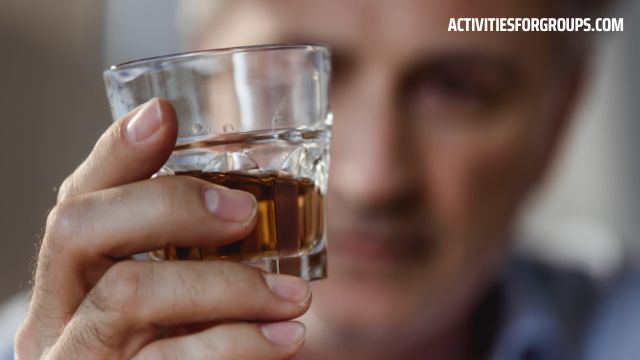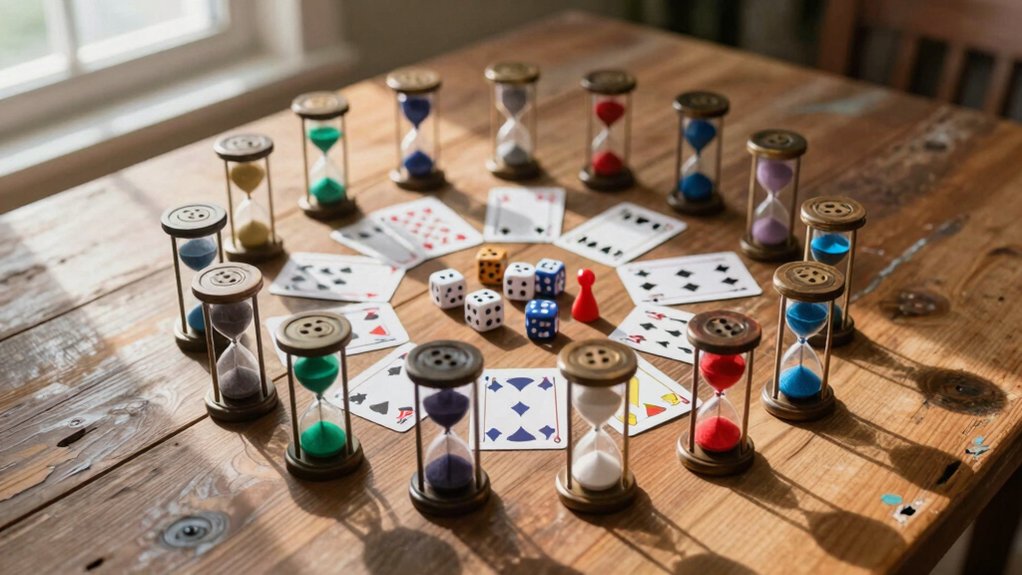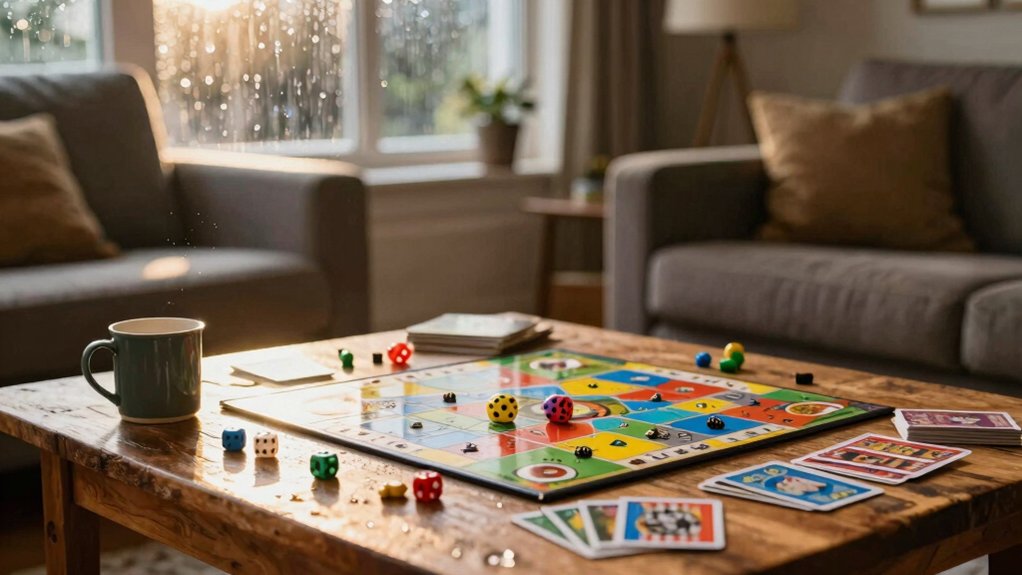Group activities can contribute a lot to achieving and sustaining effective, long-term addiction treatment. And you know, at most places, these types of group treatment are offered without charge everywhere across the globe.
These groups’ activity aids healing by offering a judgment-free setting where participants may express acceptance and provide affirmation.
Recovery groups provide an open forum for participants to share their experiences, express themselves, and work through emotions that can otherwise become overwhelming.
Also, you have to check out my post on the 20 Group Activities For Daycare In 2023 That Will Keep Your Kids Engaged.
Fun Activities For Drug & Alcohol Addicts Group

Interactive group activities can really help in drug and alcohol recovery.
That’s why we are going to bring up here some interactive group activities for people in drug and alcohol recovery.
8 Game Activities For Alcohol Addict Groups

Effective group interaction can help anyone to come out of alcohol addiction. Hence, these 8 group game activities should have a try.
- Compose a story together: In this game, everyone should take a seat in a circle and add one comment to the narrative when it is their turn. For instance, the first person can say “She,” the second can say “was,” the third may say “really,” and the next can say “bored,” etc.
- Description Activity: Choose a place and ask each person to describe a distinct aspect of some scenario to help everyone understand the place better.
- Play characters: In this group game, one individual plays the role of a character pressuring the other to use drugs. The other individual should have some practice fending them off.
- Name Tag Activity: Each person is provided with a nametag with different labels that the group leader attaches to the back of them. Tags can be used to describe someone, such as “criminal,” “depressed,” “arrogant,” “liar,” “wealthy,” “injured,” or “fool,” etc. This is a fantastic approach to preconceptions and how people treat one another.
- Play charades: This is a game to practice how to express yourself without speaking. This can lead to talking about the significance of body language.
- Quizzes: Practice brain tricking quizzes and optical illusions. Then talk about how perceptions vary from person to person and how everything might not be how it seems. Describe how the human mind is susceptible to error.
- Playing Instruments: Take turns playing a portable instrument, like a singing bowl, which can be shared around the group.
- Roleplay: Participate in a role-play interview where you play a character impacted by your drug use (such as a parent, child, or sibling.
5 Writing Activities For Addict Groups

Participants in the alcohol addiction groups can make use of writing to understand themselves better. These activities will let them get out of addiction!
Here are some activities in that regard.
- Psychoanalysis: Note down the harmful behaviors you have. Why are they undesirable? What actions do you take to stop yourself from acting on these behaviors?
- Affirmations: List down some affirmations for you and the group members.
- Indirect Catharsis: Each person should write their greatest fear on a piece of paper and then anonymously place it in a bowl. The bowl should be handed around the group, and each person should sketch something on paper and discuss the fear they chose. Participants can use several events and emotions for this activity to broaden their understanding of empathy.
- Listicle: Participants can make a list of their life’s best and worst experiences.
- Free Speech: Spend some time writing in the manner of a stream of consciousness. Even if your first thought is, “I can’t think about something to write,” write it down nevertheless. Each person gets the chance to present their writing when the allotted time has passed.
19 Discussion Activities For Drug Addict Groups

Drug or alcohol addict groups shouldn’t have to be boring. You can have these discussion activities to have some retrospection.
- Find Out Support Group:
Determine the internal and external support networks in your life. What do they do to assist you? Who do you provide help for in a similar way? What other measures can you take to assist others? How do the other group treatment participants help you- try to find out all the answers.
- Be Grateful:
Discuss the topic of thankfulness. How can you be grateful?
- Analyze Important Terms
Talk about the effects of language. Why are certain terms deemed “good” while others are considered “bad”? Do you have any comments in mind when you think of drug abuse? How can you use the words you choose to help or hurt others?
- Analyze Other Behaviour Towards You
What words or phrases would you use for describing yourself? What can you say to tell who you are? What adjectives would people use to sum you up? What adjectives best characterize the perfect human being- answers of all of these queries will help you a lot.
- Go Through Deep Discussion About Your Physics
Discuss the significance of physical fitness. What fitness objectives do you have? How are you pursuing these objectives? Would you say that your current exercise routine is healthy? Why or why not?
- Use Imagination
Imagine receiving $1 million from an unknown source. How would you use it? Explain your reasons.
Talk about forgiveness. Do you have somebody you’d forgive from your past? Do you have something to say to them?
- Get Inspiration From Your Favorite Song
Name a song that truly means something to you. What are the reasons you find this song to be special? Pay attention to the songs the other group members share and recognize how different people find inspiration in various places.
- Self-Realization
What advice would you impart to your younger self? What would you change if you could?
- Introduce Your Role Model
Talk about your role models. What idols do you have? What did they do that encouraged you? What qualities do you want to possess? Do your heroes also have flaws? How may their actions inspire you to continue your healthy recovery journey?
- Let Others Know Your Touching Story
Share a personal, touching story with the group. The group members should highlight the feelings they experienced. Talk about how it may be challenging to recognize emotions.
- Evaluation
Consider that this is your final day on earth. How would you respond? With whom would you spend it? Would you be content with the way everything has turned out in your life?
- How About Your Youth
Share a story from your youth. Would you say that your early years were fulfilling? What might you change if you could?
- How Do You Manage Stress
Speculate on stress reduction. What stresses you generally? Is there a purpose for stress? What remedies are there for stress management? What if you fail in managing your stress?
- Discuss Mindfulness
Talk about mindfulness and present-moment living.
- Nutrition Matters
Discuss the significance of nutrition. What are your dietary objectives? What actions should you cease to improve your nutritional habits? Would you say that your connection with food is positive? Discuss the reasons for your answer.
- Believe In Recovery
Talk about where you believe your recovery is at this point. Everything that you have achieved and everything you hope to do in the future should be discussed.
- What Is The Role Of Self Care
Discuss the significance of self-care. What are your aims for self-care? What measures are you currently taking to reach these objectives? Would you say that you presently practice good self-care? Discuss the reasons.
- Explore Your Potentiality
What would you want to say to the world if you could say only one thing? Explain your reasons.
3 Potent Group Activities For Relapse Prevention
Addiction can be the result of subconscious trauma and the only way to come out of it is to be able to face that trauma. These are the group activities for relapse prevention that are potent in addressing the subconscious trauma.
- Funny Introductions
There are a number of enjoyable group activities for relapse prevention, however, most of these can be challenging and cause a lot of emotional exploration.
Attendees in these groups may find it difficult or even embarrassing to narrate some of their own experiences. Using humorous introductions is a terrific technique to reduce the tension and enable everyone in the group to open up.
Rather than a simple introduction, ask each person to give three odd or humorous facts about themselves that they think others would find interesting.
This small “game” is sure to make people laugh and make them feel more at ease around the company. While getting to know each other more than the typical introductions.
- Trigger Management Exercises
It is crucial to learn how to spot both internal and external triggers that can cause you to relapse. You can read out your triggers to the group during this activity, and they will provide suggestions by posing some “what if” questions.
You can nonetheless do this alone as well. Ask yourself “what if” questions the next time you come across a trigger, and observe the outcomes.
In fact, by asking yourself these questions in a group, you would be forced to imagine your life as if you were to relapse and what would be the consequences if you do so.
- Discuss Your Fears
People frequently relapse when their lives become too demanding or overwhelming. Some people struggle to deal with fear. Topics for relapse prevention groups frequently touch on the factors that serve as usual triggers for addicts in recovery.
You can ask the group members to write down their worst fears anonymously and put them in a basket. This is a great exercise to talk about fear and keep your personal worries private.
After that, the basket can be passed around and each member can discuss their opinion on the fear they or find. Members can discuss the possible reasons and causes, as well as probable ways to deal with them.
Conclusion
It takes a lot of gut and determination to go out and join an alcohol or drug recovery group. However, most of the time members can feel overwhelmed because they don’t know what to do or say in a group.
But there is undoubtedly a way out and that is all about activities that alcohol or drug addict group members can use.
We have discussed the mindful games, discussion, writing, or relapse prevention activities that members can utilize in a group setting.
Surely you found that helpful, right?




Leave a Reply